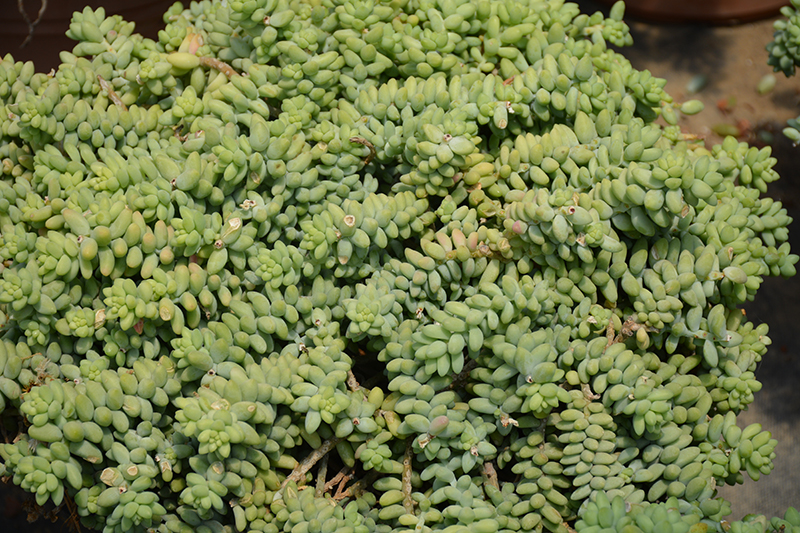12 inches
24 inches


Donkey's Tail, Lamb's Tail
Burro's Tail has masses of beautiful clusters of white star-shaped flowers with red overtones at the ends of the stems from late summer to late fall, which emerge from distinctive coral-pink flower buds. The flowers are excellent for cutting. Its large succulent oval leaves remain bluish-green in color throughout the year.
This is a dense herbaceous houseplant with a trailing habit of growth, eventually spilling over the edges of hanging baskets and containers. Its relatively fine texture sets it apart from other indoor plants with less refined foliage. This plant may benefit from an occasional pruning to look its best.
When grown indoors, Burro's Tail can be expected to grow to be about 12 inches tall at maturity, with a spread of 24 inches. It grows at a medium rate, and under ideal conditions can be expected to live for approximately 15 years. This houseplant will do well in a location that gets either direct or indirect sunlight, although it will usually require a more brightly-lit environment than what artificial indoor lighting alone can provide. It is very adaptable to both dry and moist soil, but will not tolerate any standing water. The surface of the soil shouldn't be allowed to dry out completely, and so you should expect to water this plant once and possibly even twice each week. Be aware that your particular watering schedule may vary depending on its location in the room, the pot size, plant size and other conditions; if in doubt, ask one of our experts in the store for advice. It is not particular as to soil pH, but grows best in poor soil. Contact the store for specific recommendations on pre-mixed potting soil for this plant.
There are many factors that will affect the ultimate height, spread and overall performance of a plant when grown indoors; among them, the size of the pot it's growing in, the amount of light it receives, watering frequency, the pruning regimen and repotting schedule. Use the information described here as a guideline only; individual performance can and will vary. Please contact the store to speak with one of our experts if you are interested in further details concerning recommendations on pot size, watering, pruning, repotting, etc.
-- THIS IS A HOUSEPLANT AND IS NOT MEANT TO SURVIVE THE WINTER OUTDOORS IN OUR CLIMATE --
